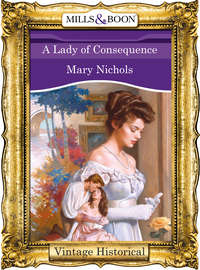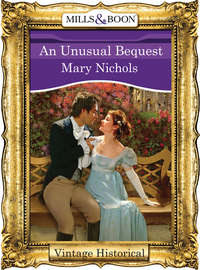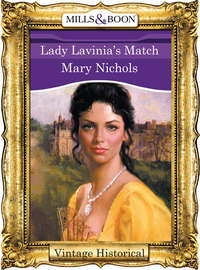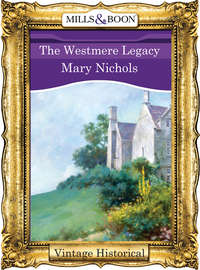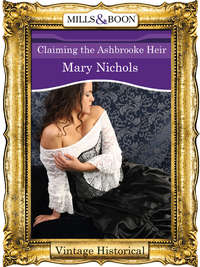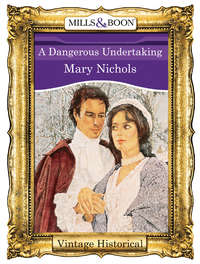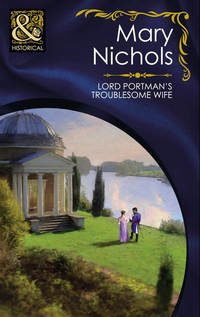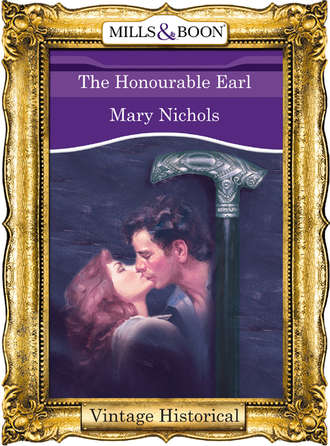
Полная версия
The Honourable Earl
‘Sir Arthur. I am sorry for your mishap.’
‘Oh, ’twas nothing. I am only sorry you were deprived of your supper. May I escort you home?’
‘No, thank you, sir. We have our own coach.’
‘Then may I call and pay my respects to your mama in the near future?’
‘I am sure she will be pleased to receive you, sir.’
The crowd had thinned while they had been talking and Lydia was suddenly aware of her umbrella man watching her, watching them both with a look on his face which was both quizzical and disapproving. He stepped forward and bowed. ‘Goodnight, my lady.’
She found herself dipping a small curtsy and smiling. ‘Goodnight, my lord.’
‘Who was that?’ Annabelle demanded, when they were settled in the chaise and were trotting towards Colston.
‘I have no idea.’
‘But you called him “my lord”.’
‘He called me “my lady”, so why not?’
‘Who does he think you are, then?’
‘I don’t know that either. We are perfect strangers.’
‘It didn’t look like that to me. Is that why you are wearing your best gown? You expected him to be here. Oh, what will Mama say?’
‘She will say nothing, because you are not to tell her.’
‘Oh, a secret. Have you an assignation with him? Oh, Lydia, he is so handsome, but supposing he is a mountebank?’
‘I am sure he is nothing of the kind. And I do not have an assignation with him. Whatever gave you that idea? We spoke half a dozen words while you were busy fluttering your eyelashes at Peregrine Baverstock…’
‘At least I was doing it to some purpose. You seem to have gained nothing. But there, I suppose we should hold to the maxim that a bird in the hand is worth two in the bush.’
‘Whatever do you mean?’
‘Sir Arthur. He is going to call, is he not? He would not do that if he were not serious.’
‘Annabelle, if you mention Sir Arthur just once more, I shall slap your face, really I will. Let it be, will you?’
‘Oh, if you are going to fly into a temper, then I shall say no more. But if you want me to keep your secret from Mama, then you will have to find a way of persuading me.’
‘Oh, Annabelle,’ Lydia said, laughing, ‘you are such a mischievous child…’
‘Not so much of the child, if you please. I am old enough to fall in love.’
‘Are you, indeed?’
‘Yes, indeed. And do not tell me you do not know what it feels like, for I am persuaded that you do. I saw the look you had for the handsome stranger. Who is he, Lydia?’
‘I told you, I do not know the gentleman.’
‘So what are you going to do about it?’
‘The stranger? Why, nothing. Why should I?’
‘No, I meant about persuading me to hold my tongue.’
‘You can have my silk fan, the one Grandmama gave me.’
‘Can I? Oh, can I?’ her sister said eagerly, then laughed. ‘You must love him very much to part with that.’
‘Don’t be silly. I have been thinking of giving it to you ever since we made that pink gown up. It matches it exactly and would certainly not go with my yellow brocade.’
‘Oh, you are a darling!’ And Annabelle flung her arms about her sister in the rocking vehicle, making it sway more than ever. ‘The best sister anyone could have.’
They continued in silence for a few minutes, but Annabelle was still bubbling over and could not keep quiet. ‘Do you think the Earl will allow the ball to go ahead?’ she asked.
‘I don’t know, nor do I care very much.’
‘Oh, Lydia, do not be such a misery. If we go to the ball I shall see Perry there and, who knows, your fine gentleman might attend.’
And what good would that do? Lydia asked herself. Annabelle had said a bird in the hand was worth two in the bush. She knew nothing whatever about the handsome young man, not even his name, but she knew all she wanted to know about Sir Arthur Thomas-Smith. Tears pricked at her eyes and she was thankful that the darkness in the coach hid them from her sister’s eyes.
Their mother had not waited up for them so, as soon as they arrived home, Lydia pleaded tiredness and went to her own room, thankful that now her older sisters no longer lived at home she had a room to herself. She could not bear another minute of Annabelle’s excited chatter, her bubbling optimism which hinged on Lydia marrying Sir Arthur in order to smooth the way for her own marriage. He was a respectable gentleman who had done nothing wrong; in truth, had done everything right, at least in her mother’s eyes, but she did not want to marry him.
Oh, she knew perfectly well that most young ladies bowed to the superior knowledge and experience of their parents in the matter of matrimony and usually married the men chosen for them. Sometimes, it worked very well; if it did not, both discreetly took lovers. She did not think she could bring herself to do that. But if someone like her man from Chelmsford came along… Oh, no she could not commit that sin, not even with him; she believed in the sanctity of marriage and if she married Sir Arthur she would be faithful to him. If… Had she any choice?
She tossed and turned and fell asleep at last.
Next morning Lydia rose bleary-eyed and not in the least prepared for the bombshell her mother delivered at the breakfast table.
‘The Earl is back,’ Mrs Fostyn said, picking up a sheet of paper which lay beside her plate. ‘I have had a letter from him, or, more precisely, from Mr George Falconer, his lawyer.’
‘What about?’
‘Our tenure of this house. It appears he wishes us gone.’
‘Gone?’ Lydia repeated.
‘Yes, read it for yourself.’ She handed the letter to Lydia, who read it through quickly.
‘One month to leave,’ she said, her face white with fury. ‘He has given us a month’s notice. The fiend! The indescribable charlatan! I have always hated him and I was right to do so. He cannot bear to have us on his land because it reminds him of his guilt. I knew this would happen as soon as he came back. You thought so too, didn’t you? That’s why you spoke to me about marrying.’
‘I thought it might. You see, if…’ She paused, then went on. ‘If the old Earl did not correspond with his son, then he would not know our circumstances—’
‘It would have made no difference if he had. He is entirely selfish. He could have exonerated Freddie, accepted the blame. But no, he must drag us all down with him. Only he is not down, but on top, and he means to grind us into the dirt.’
‘Lydia, pray do not be so melodramatic,’ Anne said gently. ‘The house is his to do with as he likes and he says he needs it, though why I do not know. If the Countess had lived and he had a wife and family, then of course he would expect his mother to live here, but as it is…’
‘Do you think he has a wife, then?’ Annabelle put in.
‘He is twenty-nine years old, so it is more than possible.’
‘Then I feel sorry for her,’ Lydia said sharply. ‘I wonder if she knows what happened? I wonder if he knows what people are saying about him?’
‘What are they saying?’
‘Oh, you know,’ Lydia said vaguely. ‘About him murdering Papa.’
‘I am sure they are saying nothing of the sort,’ her mother protested. ‘And I wish you would not speak of him in that fashion.’
‘Why not? It is the truth, isn’t it? Papa was unarmed and he was only trying to stop him firing—’
‘Lydia, you would not spread calumny about him, surely?’ her mother said, horrified at the violence of her daughter’s feelings. ‘That is deceitful and unjust.’
‘Which is exactly what he is. He allowed Freddie to take the blame for something that was entirely his fault. Freddie was always under his sway, even when they were boys.’
‘I do not think that is quite the case, dearest, and I beg you to curb your excessive feelings. It can only do you harm. Your papa preached forgiveness, remember.’
‘If he had lived, do you think even he could have forgiven Ralph Latimer for what he did?’
‘I like to think he would.’
‘But he did not live, did he? And we are in this coil because of what that…that devil did.’ She left her chair suddenly. ‘I am going to see him. I am going to tell him exactly what I think of him.’
Anne reached out and seized Lydia by the wrist as she passed her. ‘No, child, you will do no such thing. He is within his rights. If you provoke him, he might not even allow us a month.’
Lydia made no attempt to pull herself away, but stood passively, looking down at her mother. ‘You mean you are going to buckle under and leave without one word of protest?’
‘No.’ Anne smiled wanly. ‘We have nowhere to go. I will speak to him myself, he may not know our circumstances….’
‘Mama, you are never going to beg?’
‘No, but we need a little more time, Lydia. And I shall make a reasonable request for that.’
‘Time?’
‘Time to bring our family fortunes on to a more even keel.’
‘How? Oh, I see. When I have captured Sir Arthur. I am to be punished for what that man did ten years ago, just as Freddie was punished and you have been punished. It goes on and on. If I could think of a way to make him pay, then I would. I would see him rot in hell.’
‘Lydia!’ her mother cried. This battling daughter of hers was so consumed by her hate, it was threatening to destroy her. ‘You must not say such things. It is wicked.’ She paused. ‘Sit down again, Lydia, and calm yourself. You know, you frighten me when you talk like that. Hate is a dreadful emotion, and you should remember that vengeance is for God, not man. We are none of us guiltless.’
Lydia sank back into her chair. ‘Oh, Mama, there is no one more innocent than you. How have you borne it all these years? How have you found the fortitude?’
‘Through my faith, child. The faith your father preached. Now, I want you to promise me one thing—that you will not attempt to see or speak to his lordship.’
Lydia smiled wanly. ‘That is an easy promise to make, for he is the last man in the world I should want to have any discourse with.’
‘Good. Now, tell me, dearest, would it be so very bad to marry Sir Arthur? He is not an ogre, he is a pleasant, respectable man who is very fond of you. I am not thinking only of our circumstances, but your happiness. He will look after you…’
Lydia gave a cracked laugh. ‘And curb my fiery temper, you think?’
Her mother smiled and patted her hand. ‘He might. And living at his home in Southminster, with other things to occupy you, might bring you peace of mind, the strength to accept what we cannot change.’ She paused and added gently. ‘At least, say you will consider it.’
Lydia sighed. She really had no choice. ‘Very well. I met him last night and he asked if he might call. You may intimate to him when he comes that I shall look favourably on his suit.’ She smiled suddenly. ‘But do not make me sound too eager, will you?’ Her mother released her hand and she rose to leave. ‘I am going to Malden—I need a book from the lending library. Is there anything you need?’
‘No, I do not think so, thank you.’
Partridge was busy in the garden and, rather than take him from his work, she decided to walk the three miles into the little town which stood at the confluence of the Chelmer and Blackwater rivers. It was a spring fine day and Malden Water, though grey, was calm and several fishing boats could be seen either coming up from the sea or heading out towards it. Inland there were lambs in the fields, and the mare Farmer Carter kept in his meadow was proudly showing off a new foal which frisked about on its spindly legs, obviously pleased with life. It was the sort of day to raise the spirits and Lydia would have enjoyed the walk if her thoughts had not been occupied with her dilemma.
It was all very well for Mama to say hate was a dreadful emotion, she knew it was, but she could not help herself. How could she be calm about the prospect of marrying a man old enough to be her father when there were men like her umbrella man in the vicinity? If she had never met the handsome stranger, would she have been content to marry as her mother directed? He had set her heart beating and fired her into longing for something she could only guess at: a passion, perhaps, that transcended everything.
She did not need to know his name, or his circumstances, or anything about him in order to know that he could ignite in her an overpowering desire. It was wicked of her, wicked and almost depraved. She had not been brought up to feel like that, had not, until a week before, realised that such feelings existed, certainly not in young ladies with any pretensions of decency. She must squash such thoughts and feelings, cut them out of her life altogether, forget the young man and his dangerously compelling eyes.
Ralph had spent most of the previous evening in the library at Colston Hall with a glass of brandy at his elbow, pouring over accounts and maps and reports from his general factotum about the condition of the estate, and what he read had appalled him. Today he had decided to see for himself and that could only be done on foot.
Donning leather breeches and topboots, he had thrown on a brown worsted coat and visited all the farms on his domain, talking to the tenants and finding out what was needed. New thatch on the roofs, new glass in windows, new clunch on the pigsty walls, he was told when they got over their surprise at seeing him thus clad and being convinced he meant business. The ditches needed clearing, too, or come the winter there would be an inundation from the marshes.
He was thankful he had come back home a wealthy man, or such a catalogue would have sent him bankrupt. He was doubly thankful when he realised that the fabric of the ancient church needed repair and that half the pews had woodworm and only he had the means to remedy it. After that, it was a quart of best ale in the village inn and back home via the old Roman road, now only a track, which ran alongside the marshes and the copse of trees where game was reared. Game birds were rare in this part of the world, which had few trees, except those planted in the gardens of the wealthy, who were following the latest trend for landscaping. His great-grandfather had planted this wood and his father had taken on a man who called himself a gamekeeper and who was skilled in breeding and rearing the birds simply for the sport. The woodland was his particular domain.
It was also the domain of a very different breed, he realised, as he picked his way through a tangle of undergrowth which had spread out over the path. A man could hide there for weeks without being found. The path itself was well-worn and some of the bushes alongside it had been broken recently, as if something wide and heavy had travelled along it. Curious, he moved forward cautiously.
He came to a small clearing in the middle of which was a tumble-down hovel which had once been inhabited by a woodsman. He smiled, remembering how he and Freddie used to play round it as boys, pretending it was a fort and one was attacker and one defender. Its windows were broken and the ivy which clambered round it was invading the inside. Deserted it looked, almost ready to fall in on itself and return to nature.
But that was how it was meant to look, he realised, as he noticed the thatch on the roof had been repaired and so had the stout door, which was securely locked. Someone was either living here on his land or using it for some secret purpose. He looked up at the chimney. There was no smoke. Did that mean there was no one there now? He went to the door and knocked. There was no reply. He walked all round it. The path at the rear led down to the marshes where there was an old boat house, as he very well knew; and here there were signs of a cart and hoofmarks in the mud.
He returned to the house and peered into the windows, cupping his hands about his face. As his eyes became accustomed to the gloom, he noticed a pile of sacks and a barrel on the floor and a table with a pair of scales. There was a bottle beside them and the remains of an oilskin wrapping. Smugglers! This was a hideout for smugglers.
He was inclined to be amused, since nearly everyone tolerated free-traders, as they preferred to be called; half the tobacco, tea, wine and spirits consumed in the country was contraband. His father may even have condoned it in exchange for the odd barrel. But only two days ago, he had learned from Robert Dent that there was going to be a concerted effort by the revenue men to stamp out smuggling and extra patrols were to be sent out. ‘There wasn’t so much of it during the war,’ Robert had said. ‘But now it has grown again and we do not want to return to the days of the vicious gangs who plied the trade openly and thought nothing of murdering anyone who got in their way.’
He would keep watch and find out who these men were. Depending who they turned out to be, he would hand them over to the justices or warn them off.
Leaving everything exactly as he found it, he returned home to find Mrs Fostyn waiting for him. The servants, accustomed to admitting her, had had no reason to change their habits and she had been conducted to the drawing room to await his return.
‘Madam, your obedient,’ he said, sweeping her a low bow. ‘You find me somewhat dishevelled. I was not expecting company.’
‘It is no matter, my lord. I had to come.’
‘Oh.’ He had always liked Freddie’s mother and could not bring himself to be rude to her. What had happened had certainly not been her fault and she must have suffered greatly at the loss of her husband. ‘Pray, go on.’
‘It is the matter of the letter I received from your lawyer. I assume it was written at your dictation.’
‘It was.’
‘I know you have every right to ask us to leave and I do not dispute that, but a month is so little time to find somewhere else to live. Could you not find it in your heart to extend that? Your father, the late Earl, said we could stay as long as we wished.’
‘My father is no more.’
‘Yes. I should have offered my condolences. Forgive me.’
She was almost grovelling and it pained him to see it. ‘You see,’ she went on when his only reply was a slight inclination of the head, ‘I have two daughters as well as a young son of twelve still at home and I must find some way of supporting them.’
‘You support them? Why not Freddie? Surely it is up to him?’
‘Freddie?’ She looked astonished. ‘Freddie left home at the same time as you did and we have not seen or heard from him since. Did you not know?’
It was his turn to be surprised. ‘No, I did not. I assumed—’
‘Your father thought it would be for the best. He came to see me. He told me that, as a magistrate, he was duty bound to arrest anyone breaking the law, but he couldn’t bring himself to have you arrested and was determined to send you away. He said the Countess was bowed down with grief and it would not do for her to see my son about the village after you had gone. He was determined Freddie must be sent away too. Besides, Freddie himself was so distraught, blaming himself for what happened, that he was eager to be gone.’
‘I am sorry,’ he said softly. So his father had threatened them with the law. ‘I knew none of this.’
‘But the late Earl was a kind and generous man and he knew I had no means of support except my husband’s investments, which were by no means large enough to allow us to find a new home and keep us in comfort. He offered me the dower house and, for the sake of my children, I agreed. Except that we did not know whether Freddie was alive or dead, we have been happy there and…’
‘Have you not seen your son in all that time?’
‘No, my lord. Oh, I knew from the beginning we could not stay forever. Sooner or later you would come home and everything would change. But I hoped it would not be until after my daughters were safely wed. Susan married Sir Godfrey Mallard’s son some time ago and Margaret has decided to devote her life to other people’s children—she is governess to the Duke of Grafton’s children. But Lydia and Annabelle are still at home…’
‘Lydia,’ he said, smiling faintly. ‘She’s the one with the russet hair and the mischievous smile, isn’t she?’
Anne smiled back, realising that he was not such an ogre and was civil enough to listen to her. But then, if he was his father’s son, he would be. ‘Yes, she is eighteen now and, though perhaps I should not say it, or even think it, she is the most comely of my children and…’ this with a little deprecating laugh ‘…the most stubborn and independent.’
‘Yes, I remember,’ he said. ‘She used to follow me and Freddie about and try to do everything we did. We tried to shake her off and she would disappear for a little while, but then, when we least expected it, she would be back, dogging our footsteps.’
‘She is past all that, my lord, and ripe for marriage. I think, in a very little time, I shall be able to announce her engagement to Sir Arthur Thomas-Smith.’
‘Sir Arthur!’ he exclaimed, his sympathy going out to the child he had once known in spite of who she was. The brief glimpse he had had of the gentleman the previous evening had struck a chord in his memory. He had met him somewhere before but, for the life of him, he could not recall where. He certainly could not place the name, nor that high-pitched voice. Thomas-Smith, not an aristocratic name, not a memorable name, but the face, that was different. He never forgot a face. ‘I believe I met Sir Arthur last evening, a portly gentleman of middle years.’
‘Yes. He is devoted to Lydia and will curb her exuberance, you may be sure. And he has the means to support her. Annabelle, who is very pretty and biddable, will soon find a suitor, especially as Sir Arthur has indicated he will provide her with a small dowry…’
‘I understand.’ He understood very well. Lydia was to be sacrificed. When he had last seen her, she had been no more than a child, a nuisance to two young men bent on enjoying themselves. But even then there had been something about her that was different. Independent, her mother had described her. Would such a one marry a man old enough to be her father? Well, it was not his business.
‘Then you will give us a little more time?’ she asked, watching his face.
He looked at the woman sitting so still on his drawing room sofa and, though he could not even begin to forgive her son for forcing him into that duel, and he was equally certain she did not forgive him for what he had done, he could afford to be magnanimous, especially as Freddie was not at home. Somehow, the knowledge that his erstwhile friend had suffered the same fate as he had in some measure mitigated his raw hatred, though he would not go so far as to say it had disappeared totally. You could not harbour the resentment he had for over ten years and lose it in the space of a short interview with a plausible woman. But she was a mother, and knowing what his own mother had suffered set him thinking. ‘Very well. You may stay until Lydia is married. And I hope she may be happy.’
‘Do you mean that?’
‘I am not in the habit of saying things I do not mean, madam.’ He had done what he could, given the circumstances, and he would take care to avoid the path that led to the dower house until they had gone.
She rose and curtsied. ‘Then I thank you and I shall convey your good wishes to Lydia and Annabelle.’ He bowed in response and a moment later she had glided noiselessly from the room and he was alone once more.
He must be going soft, he told himself as he strode upstairs to change into something more suitable for a visit to Chelmsford. He had been told there was a builder there who could do the repairs to his tenants’ houses at a reasonable price, and the sooner they were put in hand the better. Even if he decided not to stay in the village, he could not lease or sell the estate as it was.
Was he going to stay? he asked himself as his well-sprung coach took him through the lanes of Colston where the leaves were just appearing on the trees and the air was balmy with the promise of spring. It was not the family coach, which like everything else had been neglected, but the one he had bought in London when he landed from India. Could he pick up his life where he had left it ten years before, and carry on as if nothing had happened? But how could he?


